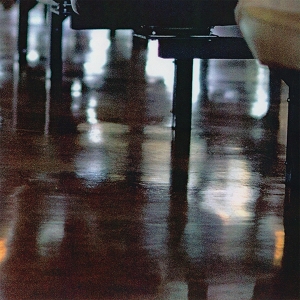Lusine “Another Tomorrow”
Splitting his time between faceless film-score work and the distinct personality he’s built around the […]

Splitting his time between faceless film-score work and the distinct personality he’s built around the Lusine name, Seattle’s Jeff McIlwain has settled into a cozy production schedule, offering up a new album every few years. Taken from the forthcoming The Waiting Room, his first album since 2009’s A Certain Distance, the Ghostly stalwart’s “Another Tomorrow” follows in the footsteps of vocal tracks like his previous album’s “Two Dots.” To be sure, Lusine has good taste in vocalists and melodies, yet it’s also clear that there’s a thin line between well-considered IDM-pop and weedy fedora music à la Frou Frou. Lusine’s production skills are largely responsible for keeping things grounded, paying equal amounts of attention to dance-music details and narrative arc.
The original “Another Tomorrow” is the busiest version found on the EP, but not distinctly the best. Combining filter-swept, undemonstrative vocals, a flickering synth line, and precision-tooled drum programming—with a few neon stabs and other electro kinks thrown in for flavor—the song contrasts deadpan precision and underplayed emotion. In a rare occurrence, the song’s alternative version bests the main mix. Lusine adds three kicks per bar to make a murky, 4/4 pulse that the vocals scrape against and worm into; the technique builds a ravey sense of momentum that seems exaggerated next to the original, but ultimately ends up being more memorable. Jon Convex‘s remix raises the bar even more; keeping things in the pocket with a spotless UK funky beat and vocals pushed behind a vocoder, he finally unleashes a piping arpeggio—a relative of the one that ran through Instra:mental’s remix of Commix’s “Japanese Electronics”—that reinvigorates the track’s by-now-familiar materials. Hanssen‘s remix, however, is by-the-numbers millennial chillout. It pulls apart the original and dips it in jacuzzi water, adding the requisite steel-pan drums and good-natured disco bassline without arriving anywhere memorable. Balearic detours aside, the record goes, quietly and impressively, from strength to strength.

